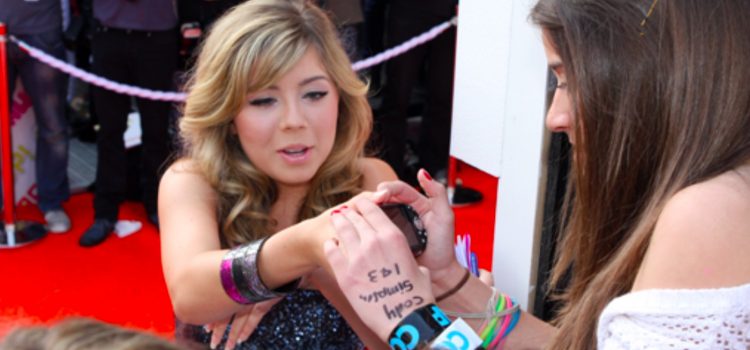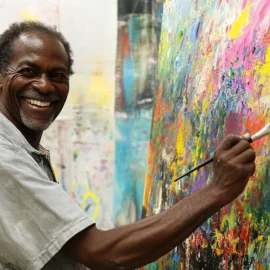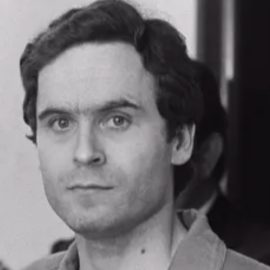

This article is an excerpt from the Shortform book guide to "I'm Glad My Mom Died" by Jennette McCurdy. Shortform has the world's best summaries and analyses of books you should be reading.
Like this article? Sign up for a free trial here.
How did Jennette McCurdy’s acting career take off? What role did her mother, Debra, play in getting her the role of a lifetime?
Jennette McCurdy is best known for her role as Sam Puckett in the Nickelodeon TV shows iCarly and Sam & Cat. But getting those roles meant heavy sacrifices, including the relationship with her mother.
Discover more about how Debra made Jennette McCurdy’s acting career less fun than it should’ve been, according to her memoir I’m Glad My Mom Died.
Debra’s Control of McCurdy’s Acting Career
When it comes to Jennette McCurdy’s acting, Debra controls her daughter’s career completely—including the decision to act in the first place.
Debra had always wanted to be an actress, but her parents wouldn’t let her. When McCurdy is six, Debra tells her that she should be an actress because Debra wants to give McCurdy the life she never had. McCurdy knows being an actress is what she has to do to make her mom happy.
Debra takes McCurdy to audition for an agency and McCurdy is accepted as a background actor. She starts to get more work because she’s good at cooperating and doing what she’s told, which she says are important traits for a child actor. She auditions to work as a principal actor with a better-known agent, and she doesn’t get it, but Debra talks the agent into taking McCurdy on as long as she takes acting classes.
McCurdy hates the acting classes. She doesn’t enjoy acting at all, but she’s glad it makes her mom happy. To add to the discomfort, Debra insists on sitting in on her acting class, so McCurdy has the additional pressure of knowing her mom is watching, judging, and coaching her (by using facial expressions and mouthing the lines).
(Shortform note: While encouraging children to work through obstacles can be healthy, putting too much pressure on them to perform can have a variety of negative consequences, including anxiety, depression, and low self-esteem. Similarly, when parents are overly involved in their children’s activities—for example, when they tell their kids how to do something that they’re already managing to do on their own—this can make it harder for the children to regulate their behavior and emotions in other contexts.)
McCurdy becomes known for crying on cue. To do so, she has to imagine horrible things happening to her family. It makes her miserable, but she usually books roles if she cries on cue in the audition. After she’s done this for a while, she has one audition where a part of her rebels against having to feel so much pain again, and she isn’t able to cry. After the audition, she tells her mom that she doesn’t want to act anymore. Her mom throws a fit, crying and banging on the steering wheel. When McCurdy retracts her statement, her mom stops crying immediately. McCurdy notices that she’s not the only one who can cry on cue.
As McCurdy gets older, she starts to notice that some of her mom’s expressions and actions seem fake—as if they’ve been rehearsed. And some of McCurdy’s own words and behavior around her mom are also a form of acting: performances designed to please her mom. For example, when McCurdy writes a screenplay and presents it to her mom, thinking she’ll be proud, her mom looks into the distance with a rehearsed “wistful” expression on her face and tells McCurdy she hopes she doesn’t like writing more than acting. McCurdy responds that of course she doesn’t—because she knows that’s what her mom wants to hear. Debra says she wants McCurdy to keep her actress’s “peach butt” and not get a fat writer’s butt; she also says that the plot of McCurdy’s screenplay has already been done in another movie.
After many years of guest-starring on episodes of TV shows, McCurdy books a role as a series regular on the Nickelodeon show iCarly. McCurdy’s regular paychecks bring her family financial stability. The show becomes successful, and McCurdy becomes increasingly famous. The attention adds to her anxiety: Strangers approach her everywhere she goes and she’s resentful and apprehensive about constantly having to interact with them.
(Shortform note: There is a long legal history of child labor laws in Hollywood regarding whether or not parents of child stars should be entitled to their income. Many child stars, including Shirley Temple and Macaulay Culkin, have been victims of their parents’ mismanagement (or embezzlement) of their salaries. As of the year 2000, California law requires 15% of a child actor’s gross income to be set aside in a trust until they are of legal age to claim it.)
When McCurdy is about 17, she begins to resent her mom for the first time. Her mom controls every aspect of McCurdy’s acting career, down to how she signs her name for autographs. It had always been her mom’s dream for McCurdy to act, and McCurdy had always wanted her mom to be happy. But now that McCurdy is successful, she starts to realize that her mom is happy and she’s not. She feels like her mom used her. Sometimes she even hates her mom, but she immediately feels guilty and tells herself how much she loves her mom and is grateful to her. Near the end of the book, McCurdy describes her mom as a narcissist.
Emotionally Immature and Narcissistic Parents
McCurdy describes her mom as a narcissist without expressly defining the term. The clinical definition of Narcissistic Personality Disorder is a pattern of arrogant thinking and behavior, a lack of empathy, and an excessive need for admiration. Psychologists point out that parents who are narcissistic or emotionally immature are highly self-centered and unable to take their children’s feelings into consideration. They view their children as extensions of themselves, as Debra does when she forces McCurdy to live out Debra’s own acting dream. Emotionally immature or narcissistic parents don’t meet their children’s needs for respect, understanding, and empathy.
Many of Debra’s behaviors toward McCurdy are of the type frequently engaged in by narcissistic or emotionally immature parents. In Adult Children of Emotionally Immature Parents, psychologist Lindsay Gibson says that emotionally underdeveloped parents expect their child to intuit their feelings, then they act in emotionally volatile ways if they don’t get what they want. Just as Debra does when McCurdy tells her she wants to quit acting, they may lash out or mope until their child figures out what they want and gives it to them.
They also demand compliance and obedience from their child, punishing or shaming the child for failing to behave according to the parent’s wishes—as Debra does when McCurdy tries to branch out into writing. In The Laws of Human Nature, Robert Greene characterizes narcissists similarly, noting that they try to control others and act righteously angry and victimized when challenged.
Unfortunately, these parents’ behaviors have long-term, negative effects on their children. Studies show that these behaviors—often collectively called emotional abuse—are more likely to cause children Post-Traumatic Stress Disorder (PTSD) than any other form of childhood maltreatment.
Children of emotionally abusive parents grow up believing that their own interests, needs, and feelings don’t matter because their parent never acknowledged them. As psychologist Alice Miller explains in The Drama of the Gifted Child, these children learn to repress their intense feelings, much as McCurdy does when she starts to feel hatred toward her mom.
This repression leads to emotional insecurity and what Miller describes as the imprisonment of the true self within a false self. Children of narcissists become “people-pleasers,” deriving their identity from their ability to accommodate others, but never feeling good enough in their own right. Because they’re unable to feel genuine feelings, they often become depressed or grandiose. Through therapy, however, they can regain the ability to feel and discover their true selves.

———End of Preview———
Like what you just read? Read the rest of the world's best book summary and analysis of Jennette McCurdy's "I'm Glad My Mom Died" at Shortform.
Here's what you'll find in our full I'm Glad My Mom Died summary:
- Former child star Jennette McCurdy's autobiography
- McCurdy's difficult, often traumatic, relationship with her controlling mother
- What it's like to grow up as a child in the spotlight






